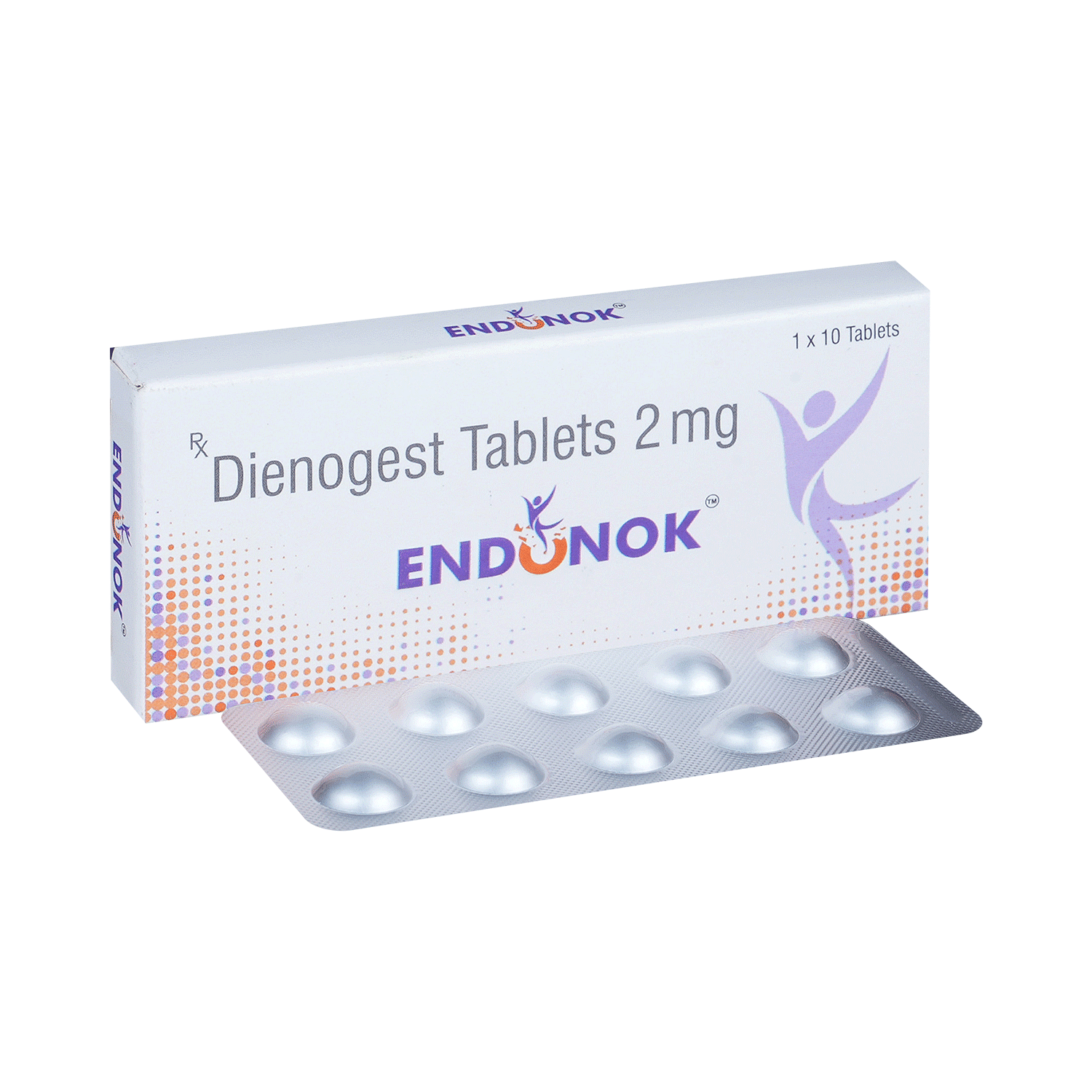




Endonok Tablet
Manufacturer
Serum Institute Of India Ltd
Salt Composition
Dienogest (2mg)
Key Information
Short Description
Endonok Tablet is used for the treatment of pelvic pain associated with endometriosis. It contains progestin, which suppresses the production of hormones causing endometriosis.
Dosage Form
Tablet
Introduction
Endonok Tablet can be taken with or without food, but it is best to take it at the same time each day to get the most benefit. The dosage and duration depend on your condition and your doctor's advice. Common side effects include acne, headache, depressed mood, breast discomfort, nausea, and ovarian cysts. It may also cause irregular menstrual cycles or spotting. Consult your doctor if these side effects bother you. Inform your doctor if you have unexplained vaginal or uterine bleeding or circulatory blood disorders. Also, let your doctor know about all other medications you are taking as they may affect the efficacy of Endonok Tablet. Do not use this medicine if you are pregnant, planning to become pregnant, or breastfeeding.
Directions for Use
Take this medicine in the dose and duration as advised by your doctor. Swallow it whole with a glass of water. Do not chew, crush, or break it. Endonok Tablet may be taken with or without food, but it is better to take it at a fixed time.
Safety Information
Side Effects
Acne Headache Depressed mood Breast discomfort Nausea Ovarian cyst
Alcohol Warning
It is not known whether it is safe to consume alcohol with Endonok Tablet. Please consult your doctor.
Breastfeeding Warning
Endonok Tablet is probably unsafe to use during breastfeeding. Limited human data suggests that the drug may pass into breastmilk and harm the baby.
Pregnancy Warning
Endonok Tablet is highly unsafe to use during pregnancy. Seek your doctor's advice as studies on pregnant women and animals have shown significant harmful effects to the developing baby.
How it works
Endonok Tablet is a progestin (female hormone). It works by suppressing the production of estradiol, a hormone that causes excessive growth of the endometrium.
Quick Tips
You have been prescribed Endonok Tablet for the treatment of pelvic pain associated with endometriosis. Take it without any break, preferably at the same time every day. Do not use hormonal contraceptives while taking this medicine. If required, use non-hormonal methods of contraception such as condoms. You may experience infrequent or irregular menstrual bleeding patterns. Consult your doctor if this bothers you. Do not use Endonok Tablet if you are pregnant or breastfeeding.
Related Medicines
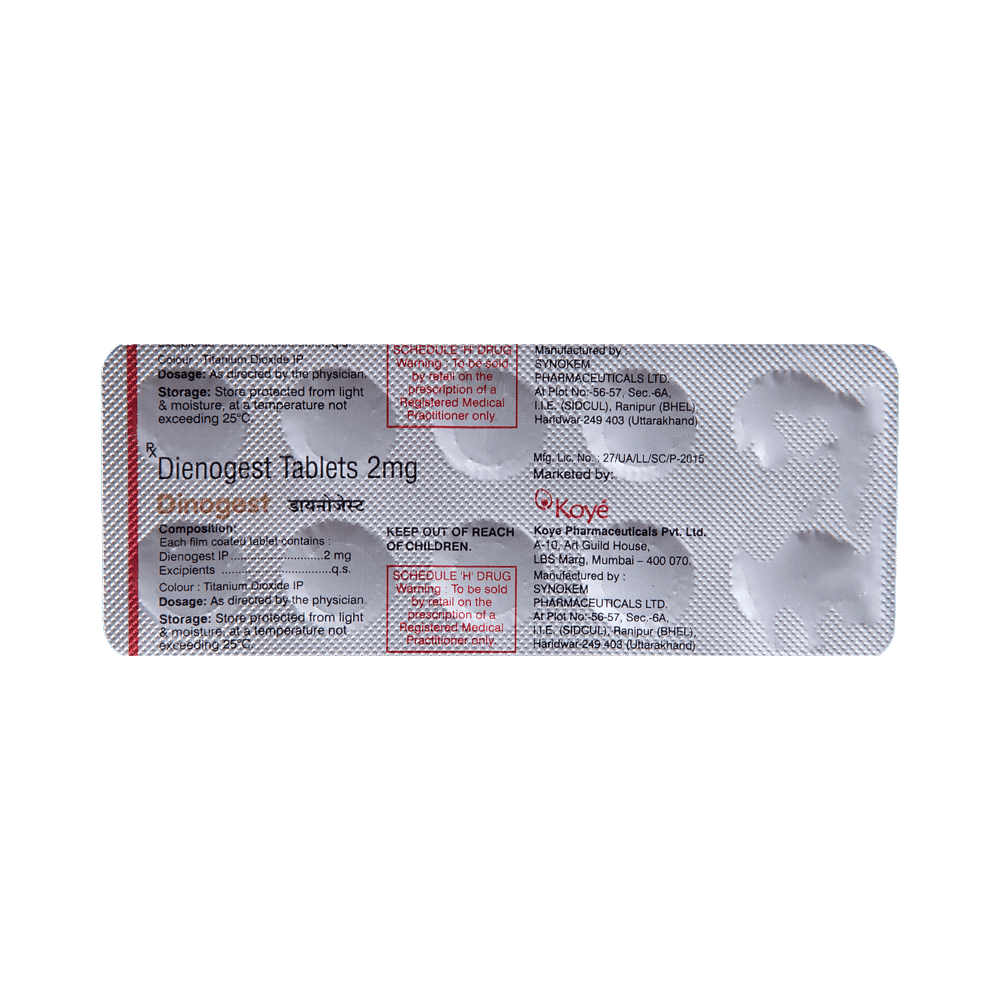
Dinogest Tablet
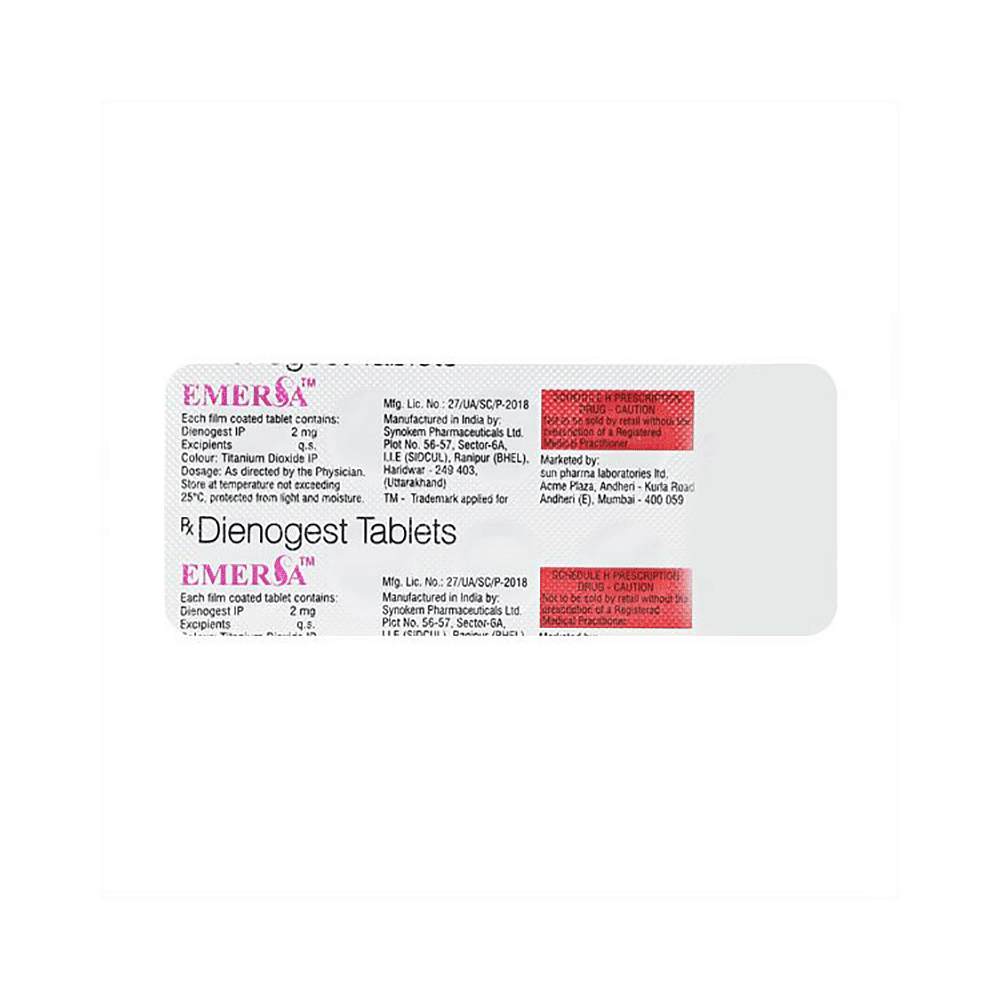
Emersa 2mg Tablet
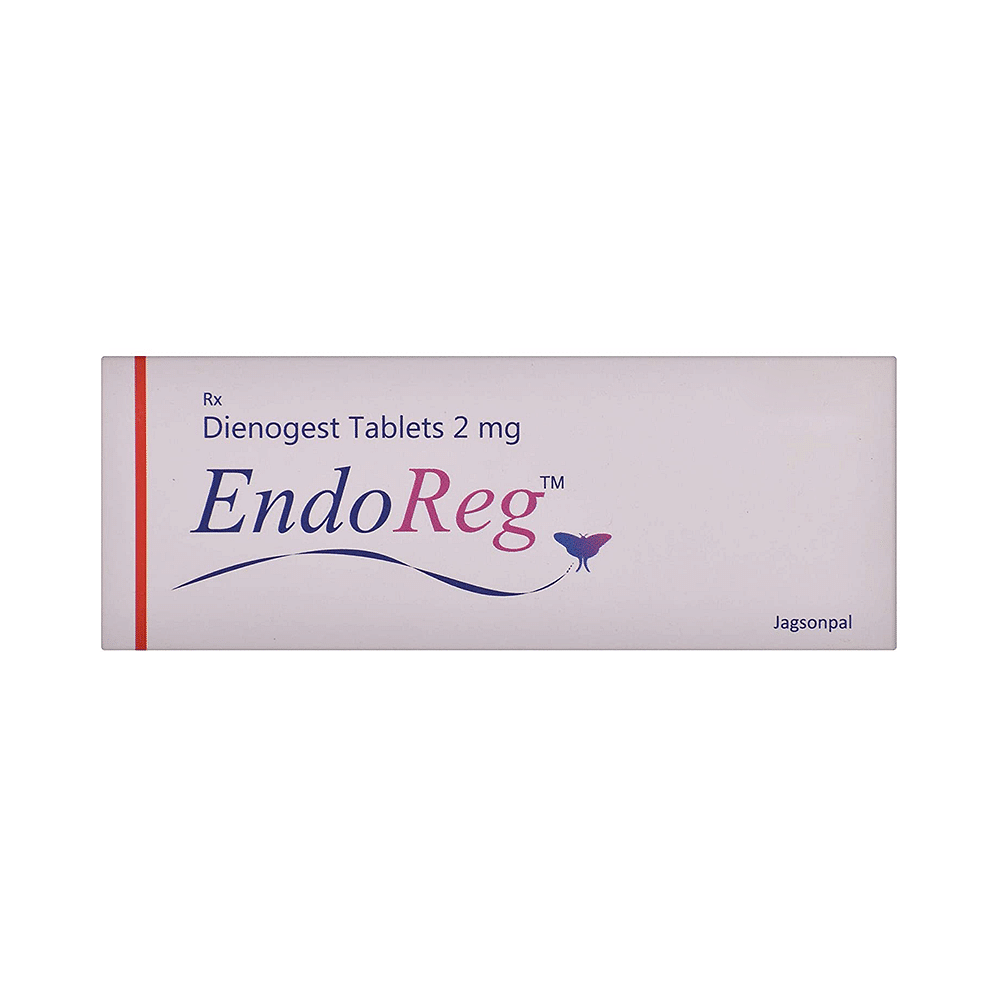
Endoreg Tablet

DNG 2mg Tablet
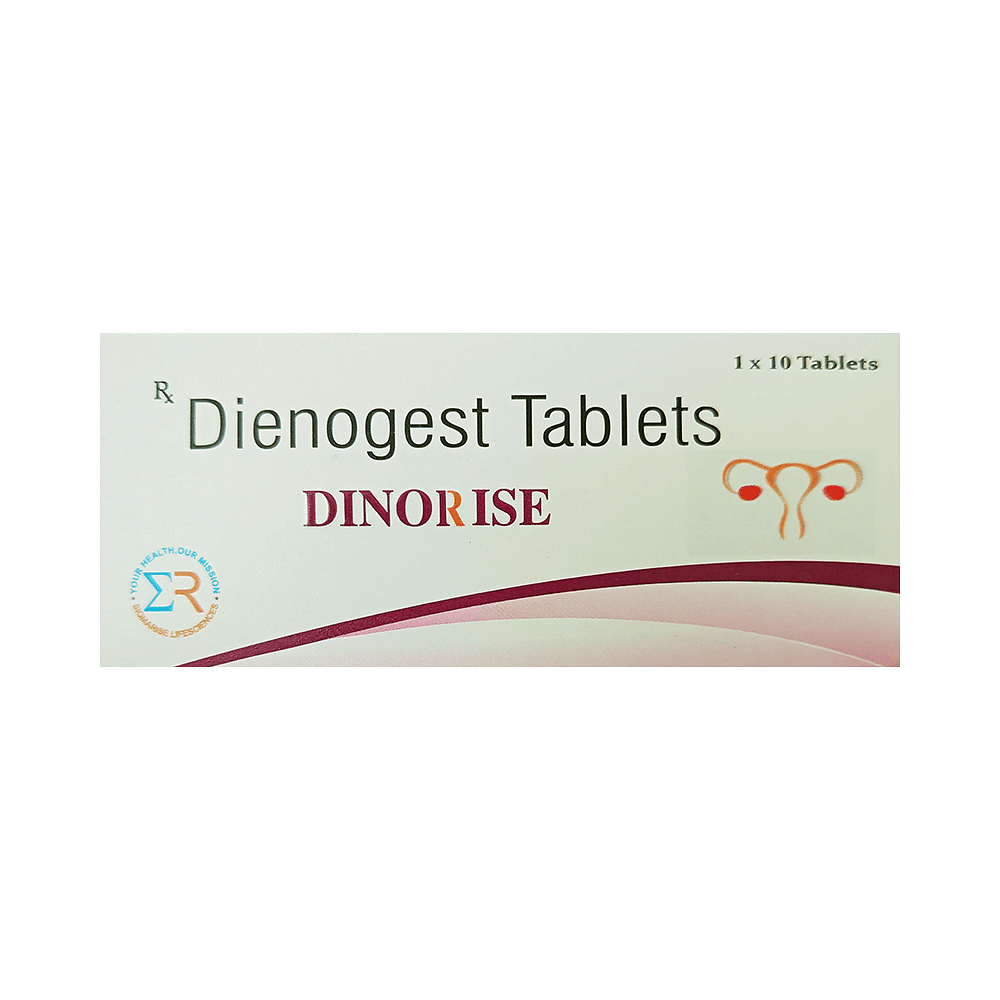
Dinorise Tablet

Visanne Tablet

Rudogest Tablet
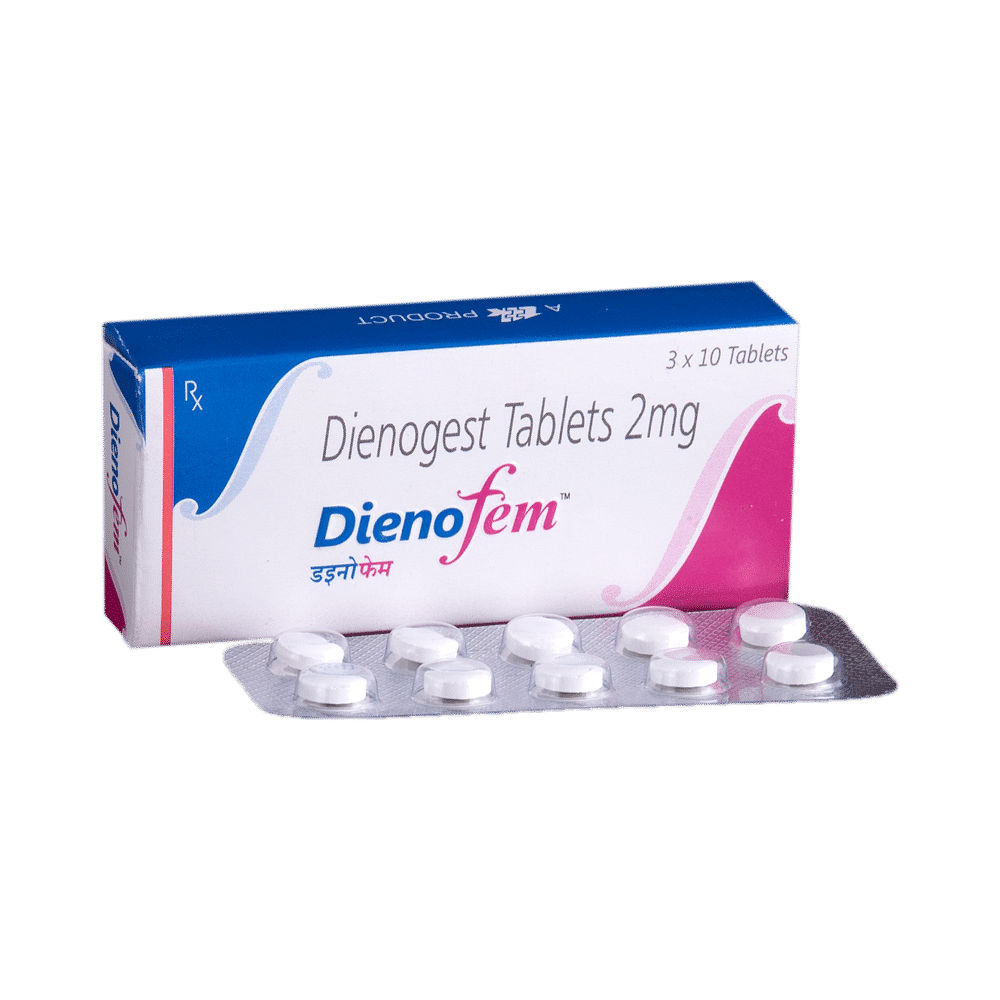
Dienofem Tablet

Dinowise 2mg Tablet
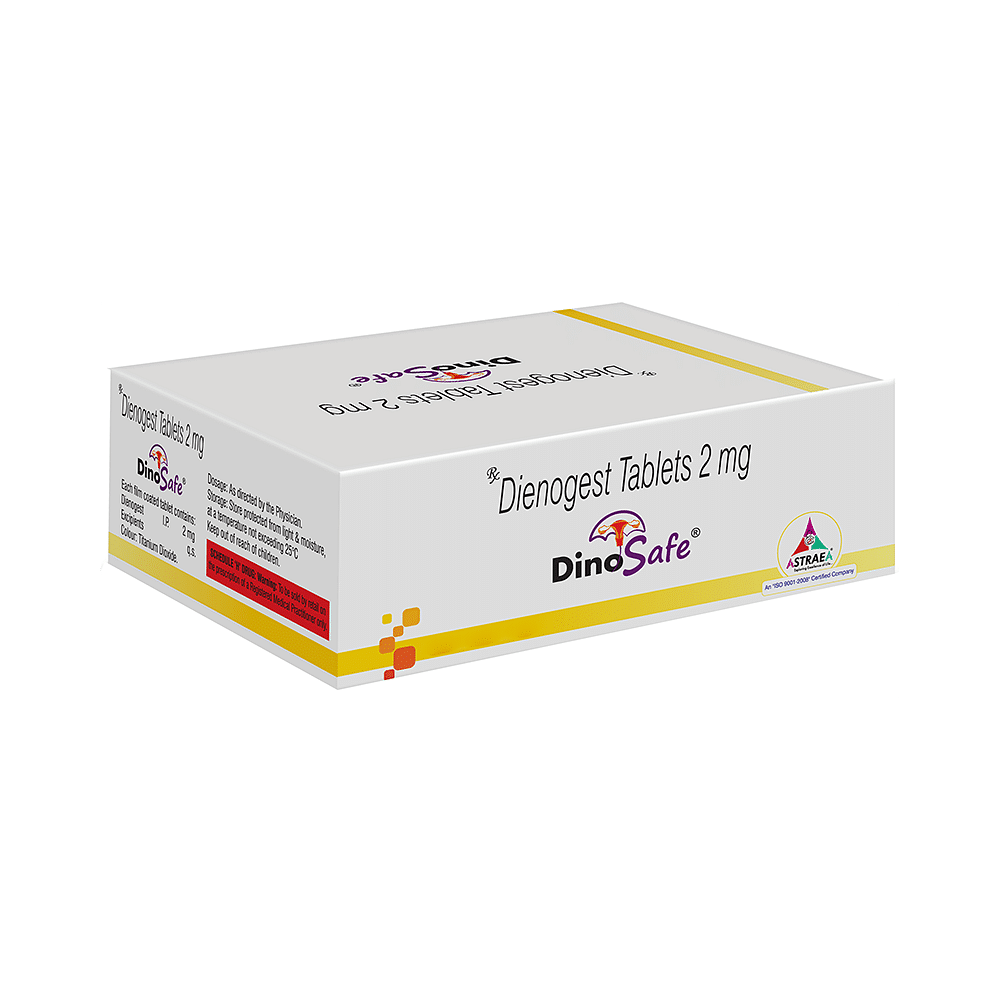
Dinosafe Tablet
Frequently asked questions
What is Endonok Tablet and what is it used for?
Endonok Tablet contains Dienogest, a type of progesterone. Progesterone is a female sex hormone. It's used in the treatment of endometriosis, a painful disorder where tissue that normally lines the inside of the uterus grows outside the uterus.
For how long should Endonok Tablet be taken?
The duration of treatment with Endonok Tablet will be determined by your doctor. The specific length may vary depending on the individual's condition and whether it's for endometriosis or as part of oral contraceptive pills. Your doctor can advise you on the best course based on your situation. Always consult your doctor before starting this medication.
How should you use Endonok Tablet?
Endonok Tablet should be taken at the same time every day with water or another liquid. You can take it with or without food. Do not skip or delay taking your pill by more than 12 hours. The dosage and duration will be determined by your doctor based on your individual needs. Remember to always follow your doctor's instructions for medication usage.
What is Endonok Tablet?
Endonok Tablet contains a synthetic form of progesterone. It is used orally in women as a contraceptive when combined with another female hormone, estrogen. This combination can also be used to manage heavy menstrual periods if the cause is not known. In some cases, it is prescribed as a single therapy for endometriosis treatment.
Is Endonok Tablet a steroid?
Yes, Endonok Tablet is a type of synthetic steroid hormone. It's made up of progesterone and used in combination with estrogen to prevent pregnancy in contraceptive pills.
How does Endonok Tablet help in endometriosis?
Endometriosis is a condition where cells similar to those found in the inner lining of the uterus, called the endometrium, grow outside the uterus. These misplaced cells can be located on the wall of the uterus or even beyond it. The exact mechanism of how Endonok Tablet treats endometriosis isn't fully understood. However, it's likely that by suppressing estrogen hormone production, it prevents the growth of endometrial tissue.


